News & Media
Morehouse College Oprah Winfrey Fellows hosted at Unisa
On 23 May 2025, the Chief Albert Luthuli Research Chair hosted Morehouse College Oprah Winfrey Fellows and Unisa students at the Unisa Library for a transformative dialogue.
The chair has been hosting the fellows annually since 2023, and this year they met to reflect on the various forms of global crises and how they affect academic spaces. This event was particularly significant as it took place during Africa Month, also coinciding with Unisa’s annual Research and Innovation Week under the theme "Proudly African, Globally Relevant". Africa Day, commemorated on Sunday 25 May 2025, added symbolic weight to the week’s engagements. The presence of the Morehouse College Oprah Winfrey Fellows underscored the importance of diasporic reconnection and global black solidarity in academic, cultural and political discourse.
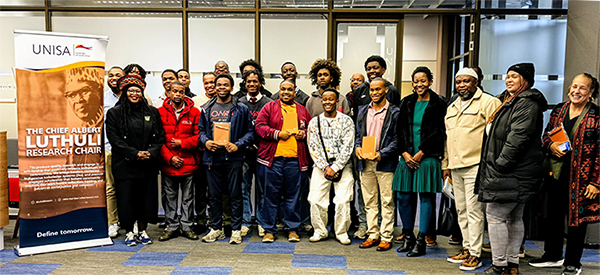
Prof Puleng Segalo, her research team, participants from the Morehouse Oprah Winfrey Fellowship and Unisa students at the Unisa Library
Dr Jann Adams, Lead Director of the Andrew Young Centre for Global Leadership, described the Fellows’ visit to the African continent, and more specifically to an African-led institution, as "enriching and timely". The experience offered the students a rare opportunity to engage with African epistemologies, intellectual traditions and cultural narratives in an environment that affirms black identity and agency. Their immersion within the university space during African Month also foregrounded the importance of creating academic exchanges that are rooted in shared histories, rather than mere institutional affiliations.
At the heart of the day’s engagement was a reflective dialogue facilitated by Prof Puleng Segalo, incumbent of the Chief Albert Luthuli Research Chair. Segalo opened the session by grounding the conversation in African cosmology and community, urging the participants to think beyond Euro-American frameworks and to consider the philosophical, spiritual and social world views indigenous to the continent. Her facilitation offered a space of healing and reflection, a moment to reckon with personal and collective histories, while also envisioning transformative futures.
The programme was enriched by a spoken-word performance by Lesego Plank, a researcher with the Chief Albert Luthuli Research Chair. Plank’s poems "On the 22nd of May 2025, I had a Dream" and "A letter from iNkosi Albert Luthuli", interwoven with themes of memory, resilience and reclamation, set the tone for the emotional and intellectual depth that followed.
A particularly moving component of the session was the keynote dialogue delivered by Dr Emmanuel Rowlands, a postdoctoral fellow at the Chief Albert Luthuli Research Chair, whose recent work examines the intersections of gender, violence and black masculinities. Drawing from his book, Men and Powerlessness: Masculinities and Intimate Partner Violence (2023), Rowlands invited the participants to reflect on the often-silenced emotional worlds of black men. His intervention probed how structural violence, historical trauma and contemporary racial dynamics shape the experiences of black men on both sides of the Atlantic.
This conversation resonated deeply with the students, many of whom noted the rarity of encountering safe and open spaces where the complexities of black masculinity could be interrogated without judgement. In both African and African American communities, discussions about modern-day masculinities are frequently overshadowed by cultural taboos, religious conservatism and stereotypical media portrayals. The session challenged those silences by foregrounding vulnerability as strength and by making room for tenderness, accountability and critical reflection.
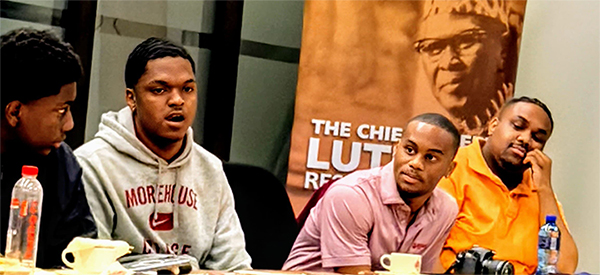
Participants in the discussion
Rowlands’s presentation was particularly poignant considering ongoing global concerns about gender-based violence, mental health and the role of black men in healing and transforming their communities. His work encourages academic institutions to take seriously the emotional and intellectual labour required to dismantle patriarchy, while also supporting the development of more nuanced, inclusive and liberatory expressions of masculinity.
The day’s discussions also ventured into the realm of international relations, with a comparative dialogue on the current political climates of the USA and South Africa. The students explored the mechanics of elections in both countries, reflecting on what political representation means for young black people in their respective contexts. This dialogue proved vital, given recent global shifts in power and the marginalisation of certain voices in political discourses. It prompted urgent questions: Whose voices are amplified? Who gets to define democracy? And what could genuine liberation look like for future black generations?
At this "turbulent" political moment, marked by contested narratives around justice, democracy and power, the transnational dialogue fostered by this event could not have been more urgent or necessary. The shared experiences of oppression, whether under Jim Crow or apartheid, or in the more covert forms of systemic racism today, offer a powerful lens through which black communities across the globe can learn from one another. Importantly, the programme did not romanticise unity but emphasised critical solidarity: building bridges not on assumed sameness, but on respectful engagement with difference.
As Unisa continues to position itself as a hub for African research and global relevance, programmes like these illuminate the potential for universities to act as transformative spaces. The collaboration between the Chief Albert Luthuli Research Chair and Morehouse College represents more than an academic exchange; it signals a commitment to reimagining what global partnerships can look like when centred on equity, memory and justice.
* By Mabafokeng Hoeane, Researcher, Chief Albert Luthuli Research Chair
Publish date: 2025-06-05 00:00:00.0


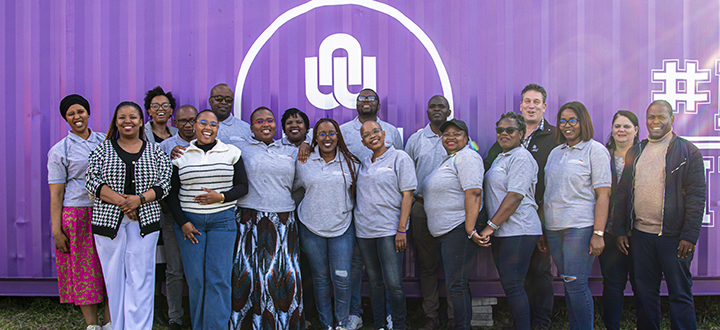 A giant leap for student success and retention
A giant leap for student success and retention
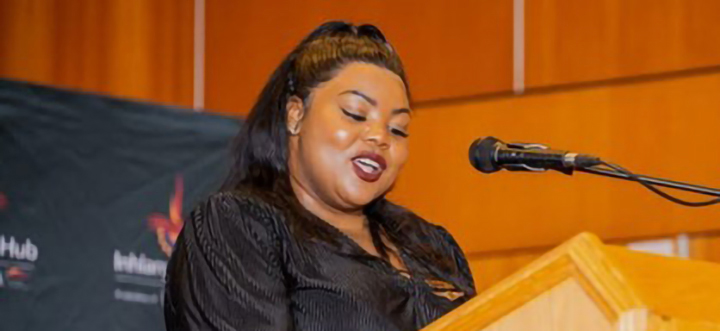 SWEEP: Where women entrepreneurs take the lead
SWEEP: Where women entrepreneurs take the lead
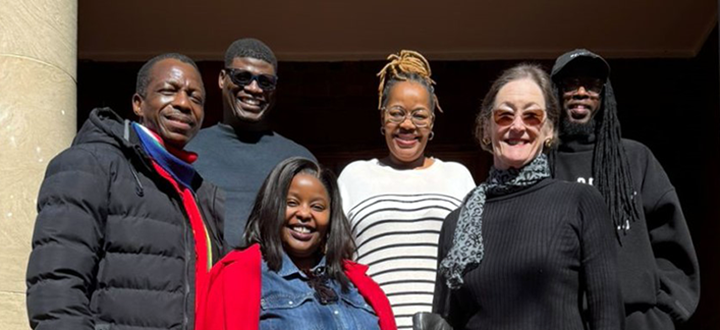 A sense of belonging and excellence nurtured through collaboration
A sense of belonging and excellence nurtured through collaboration
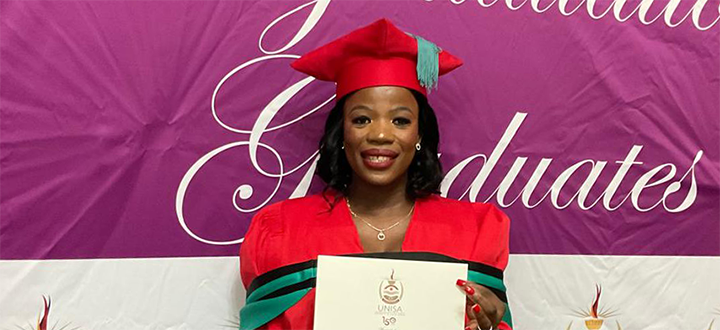 Wielding her Unisa PhD, Botswana educator champions early childhood development
Wielding her Unisa PhD, Botswana educator champions early childhood development
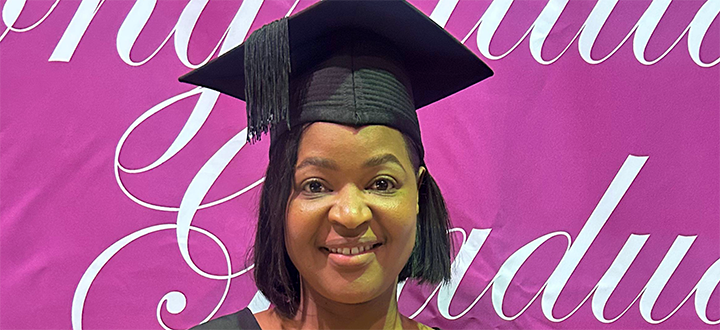 Proud Unisa alumna bridges distance and fuels career growth
Proud Unisa alumna bridges distance and fuels career growth